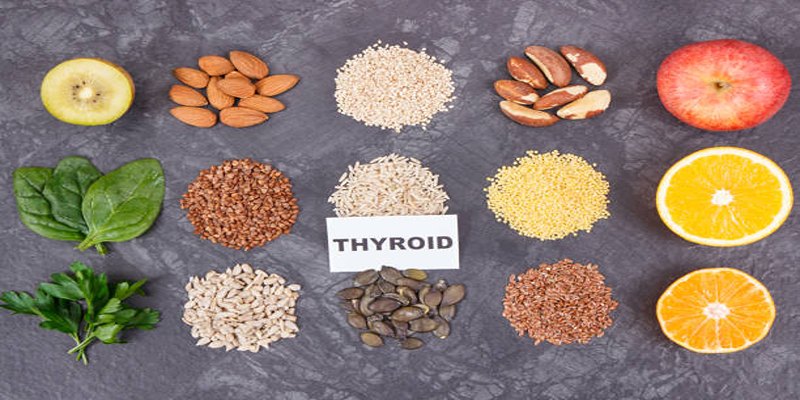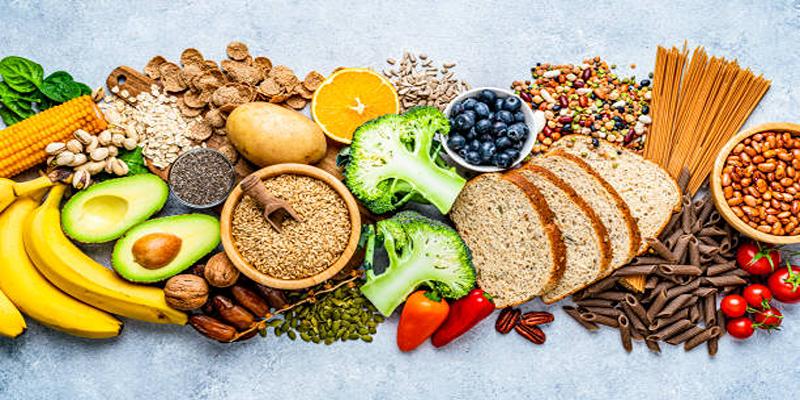The health of your thyroid gland plays a critical role in regulating your metabolism, energy levels, and overall well-being. Surprisingly, certain foods may interfere with its proper function, potentially leading to hormonal imbalances. Being mindful of your diet can make a significant difference. Here’s a look at 10 foods that could impact thyroid health.
1. Soy and Soy-Based Products

Isolated from soybeans are isoflavones which represent plant-based estrogens capable of inhibiting thyroid hormone production. Scientific studies indicate that large soy consumption levels may decrease thyroid hormone production mostly affecting people who lack iodine. Thyroid patients should limit their intake of tofu along with soy milk as well as soy protein powders and edamame.
What to Do: If you have thyroid issues, talk to a healthcare provider before making soy a regular part of your diet. Ensure your iodine intake is sufficient to offset any negative effects.
2. Cruciferous Vegetables
Vegetables like broccoli, cauliflower, cabbage, kale, and Brussels sprouts are rich in nutrients but also contain compounds called goitrogens. Goitrogens can inhibit the thyroid's ability to absorb iodine, which is essential for hormone production.
What to Do: Cooking cruciferous vegetables significantly reduces their goitrogenic properties. Steamed or sautéed versions are safer options for those with thyroid concerns.
3. Gluten-Containing Grains
Gluten, the protein found in wheat, barley, and rye, is the secret ingredient that gives dough its stretchy, elastic magic! However, for some individuals, particularly those with autoimmune thyroid disorders like Hashimoto’s thyroiditis, consuming gluten can trigger inflammation and worsen symptoms such as fatigue, weight gain, and brain fog.
This is because the immune system may mistakenly attack thyroid tissue due to similarities between gluten proteins and thyroid proteins. Even for people without celiac disease, reducing or eliminating gluten from their diet has been reported to improve thyroid function and overall well-being, making it a dietary change worth considering for those with thyroid concerns.
What to Do: If you suspect gluten sensitivity, consider undergoing testing. A gluten-free diet should be implemented under medical supervision to ensure nutritional balance.
4. Processed Foods with High Sodium
People with hypothyroidism are often at risk of high blood pressure. Processed foods—such as packaged snacks, frozen meals, and canned soups—typically contain excessive sodium, which can aggravate blood pressure and metabolism issues in thyroid patients.
What to Do: Check food labels and opt for low-sodium versions. Incorporate fresh, whole foods into your meals whenever possible.
5. Sugary Foods and Beverages
High sugar intake can lead to insulin resistance, which may further impact thyroid function. Moreover, excess sugar promotes inflammation and contributes to weight gain, which is often already a concern for those with thyroid disorders.
What to Do: Minimize consumption of sugary snacks, soft drinks, and desserts. Choose natural sweeteners like honey or fruits in moderation.
6. Caffeinated Drinks
Caffeine, found in coffee, tea, and some energy drinks, can interfere with the absorption of thyroid hormone medication, especially when consumed close to the time of dosing. It may also worsen anxiety or heart palpitations in people with hyperthyroidism.
What to Do: Wait at least 30–60 minutes after taking thyroid medication before consuming caffeinated drinks. Hydrate with water during that window to support absorption.
7. Certain Seafood High in Mercury
While iodine-rich seafood can greatly benefit thyroid health by supporting hormone production, it’s important to choose your seafood wisely. Certain varieties, particularly large predatory fish like swordfish, shark, and king mackerel, can contain high levels of mercury due to their position in the food chain and longer lifespans.
Mercury can accumulate in the thyroid gland, where it can interfere with normal hormone synthesis and potentially lead to health complications. Opting for smaller fish like salmon, sardines, or shellfish can provide thyroid-friendly nutrients with less risk of mercury exposure.
What to Do: Opt for low-mercury seafood options such as salmon, sardines, and shrimp. Limit consumption of high-mercury fish to avoid long-term complications.
8. Millet
Millet is a highly nutritious, versatile grain often included in gluten-free diets due to its rich content of fiber, protein, and essential minerals. However, it also contains goitrogenic compounds, which are substances that can interfere with the body's ability to absorb iodine, an essential nutrient for thyroid function. Iodine is vital for producing thyroid hormones, and inadequate levels can lead to thyroid-related issues.
Some studies suggest that excessive consumption of millet, particularly in populations already deficient in iodine, could increase the risk of developing goiter, a condition characterized by an enlarged thyroid gland. While millet can be a valuable part of a balanced diet, it’s important to pair it with iodine-rich foods, such as seafood or iodized salt, to minimize potential risks and maintain proper thyroid health.
What to Do: Consume millet occasionally and ensure it’s part of a well-balanced diet rich in iodine and other essential nutrients.
9. Peanuts and Pine Nuts
These nuts contain compounds known as goitrogens, which may interfere with iodine absorption in certain individuals. Iodine is a crucial element for thyroid function, as it plays a key role in the production of thyroid hormones. While these nuts are not as strongly goitrogenic as cruciferous vegetables like broccoli or cabbage, excessive consumption could still have a mild suppressive effect on thyroid activity.
This effect may be more noticeable in individuals with an existing iodine deficiency or those who are particularly sensitive to dietary goitrogens. As with most foods, moderation is key to balancing potential risks and benefits.
What to Do: Enjoy these nuts in moderation. If you have existing thyroid issues, consider tracking your intake and watching for any symptoms.
10. Artificial Sweeteners

Artificial sweeteners such as aspartame and sucralose are commonly used in "sugar-free" or "diet" foods and drinks to reduce calorie content while maintaining sweetness. While they are approved for consumption in many countries, some individuals with autoimmune thyroid disorders, such as Hashimoto's thyroiditis, report experiencing adverse reactions to these additives, including symptoms like fatigue, headaches, or digestive discomfort.
Additionally, there is ongoing scientific debate about how artificial sweeteners may impact gut health by potentially altering the gut microbiome. Since gut health plays a critical role in regulating thyroid function, concerns about the long-term use of these sweeteners continue to be explored by researchers.
What to Do: Read ingredient labels carefully and reduce reliance on sugar substitutes. Natural sweeteners in moderation are often a safer choice.
Conclusion:
Maintaining thyroid health involves more than just medication or lifestyle changes—it also requires thoughtful nutrition. While many of the foods listed above can be part of a healthy diet, the key is moderation, preparation, and individual sensitivity. If you’re experiencing symptoms of thyroid imbalance—such as fatigue, weight changes, dry skin, or hair thinning—it’s important to consult a healthcare professional. A personalized dietary approach, combined with regular monitoring, can go a long way in supporting optimal thyroid function.












